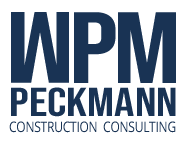CONSTRUCTION SUPERVISION
INFORMATION
The supervision of work on the construction site is not only required by law (Ley 38/1999, LOE), it is also an important factor during construction phase of every projects. This activity includes the supervision of all phases during the construction phase of a project, from the start of construction to completion, with the aim of ensuring the successful execution of the project in compliance with the required standards.
PROJECT MANAGEMENT
INFORMATION
Budget control: As part of project management, project costs are monitored to ensure that the pre-committed budget is adhered to. In the event of deviations, the client is consulted in order to make decisions.
Adherence to deadlines: The construction schedule is an important tool here. The project manager can closely monitor the progress of the work and intervene to correct any delays in the schedule in consultation with the client.
Quality assurance: Construction management is also responsible for ensuring the quality of the works to be carried out, particularly in terms of efficiency.
CONSTRUCTION SITE SAFETY
INFORMATION
Different professionals often work on a construction site at the same time, which also requires coordination in terms of health and safety in order to minimize risks and prevent accidents. In order to successfully complete a construction project, compliance with the legally prescribed construction site safety standards is an important component for all those involved in the project.
FEASIBILITY STUDIES, TECHNICAL DUE DILIGENCE
INFORMATION
Preparing technical due diligence reports – or feasibility studies – is often advisable before embarking on a construction or renovation project, it is important to carry out a detailed analysis to determine whether the project makes sense and how it should be approached.
PROPERTY VALUATION
INFORMATION
Determining the value of a property or land that is being developed or is in the construction phase can be necessary for a number of reasons.
Valuations provide important information for financial and business decisions, for example when purchasing land for future projects, valuing an ongoing construction site or a property under development.
TECHNICAL REPORTS, EXPERTISE
INFORMATION
When it comes to damage to buildings or building components, fast, expert action is essential: the aim is to minimize consequential damage and reliably analyses the damage so that the causes of the damage can be precisely determined and the damage repair can be conceptually recorded.
Determining the damage, assessing the existence of defects and the cause of the damage, as well as the conceptual description of how to rectify existing defects, are at the forefront of the assessment.




